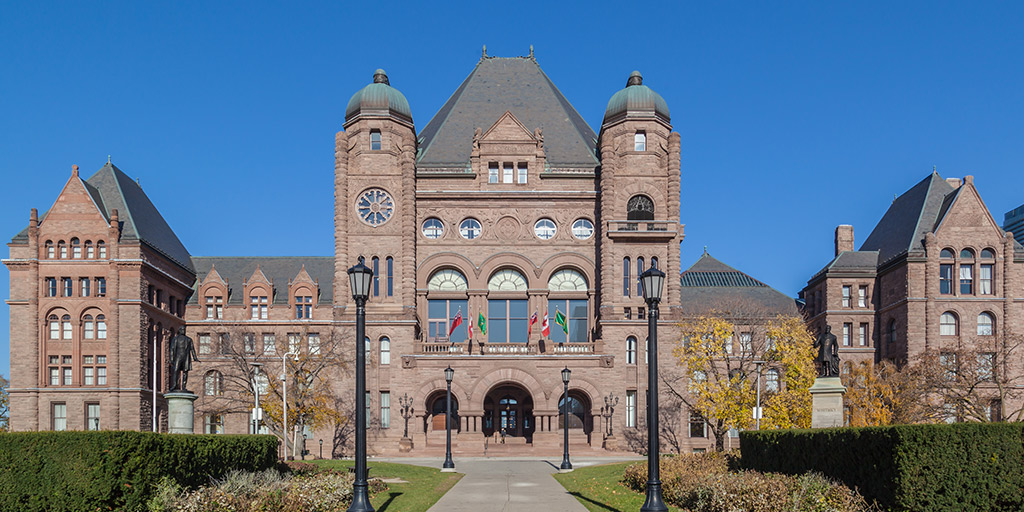Elections Ontario attempts to reach younger voters in upcoming election
 CREDIT: JHVEPHOTO
CREDIT: JHVEPHOTOElections are important for a democracy, but reaching younger citizens to vote is a key point to consider when running a campaign.
Toronto — (CUP) The 2015 federal election saw an increase in turnout among young Canadians and now, Elections Ontario is trying to encourage millennials to vote ahead of the upcoming provincial election in June.
The organization hopes that a new online registration system will increase voter turnout in a difficult demographic.
According to Greg Essensa, chief electoral officer at Elections Ontario, the youth demographic is “the most challenging demographic we have.”
“It has been shown academically that voting is habitual,” Essensa told The Eyeopener. He first proposed e-registration to the Legislative Assembly in May 2016. “If we can get an 18 year-old to vote when they turn 18� the likelihood is we have a voter for life. If we miss them, sometimes we may not see them for five or 10 years.” Without up-to-date personal information from voters themselves, Elections Ontario could potentially deliver Voter Information Cards (VIC), which contain a list of preliminary electors and voting stations, to the wrong person. Most Ontario residents are already registered to vote, but with several ridings' boundaries changing, and an increase from 107 to 124 electoral districts, it is important for voters to confirm their information is correct, or voting may become a challenge.
In order to make processing voters more efficient, Elections Ontario introduced two new pieces of technology—electronic poll books (e-Poll Books), a combination of hardware and software that allows election officials to review and/or maintain voter register information for an election and Vote Tabulators, which are removable devices used to secure voting results. The idea, Essensa said, is to make the process more accessible for millennial voters, who will be able to update their registration from mobile devices, including cell phones.
This year, Ryerson has seen a flurry of political figures on campus. In an unprecedented move by elected officials, on March 2, Ontario Liberal Premier Kathleen Wynne and opposition leaders Vic Fedeli (Conservative), Andrea Horwath (NDP) and Mike Schreiner (Green) came together for the Ryerson Democracy Forum to discuss the democratic deficit Ontario, which has the worst voting record in Canada. Voter turnout for the Ontario election in 2014 was at 52.1 per cent, the lowest in the country.
Salman Arif, a fourth-year politics and governance student at Ryerson, works as a constituency assistant to Ontario Minister of Finance Bill Morneau. He said he thinks e-registration will resonate with millennial voters. “Young people do find these things convenient,” said Arif, who added that the old process, which involved constantly checking the mail, was too “tedious.” Sometimes, said Arif, he would have to physically go to the polls to determine whether or not he'd been properly registered and risk missing his opportunity to vote if he discovered any of his voter information was incorrect.
Arif said that for all their “apathy,” youth are the “big stakeholders” in politics. “Voting is the most fundamental part of democracy,” said Arif. “It is the most important right you have, it distinguishes you from the people who don't have that right, and there are a lot of countries that don't.”
To mark Provincial Voter Registration Month, Elections Ontario is launching a voter-registration drive across Ontario, promoting e-Registration across Ontario to improve the accuracy of the Voters List throughout the month of March. Essensa said events across the province will include college and university campuses to reach young voters in the “highly-mobile” 18-24 demographic.
This year, Elections Ontario wrote 50 per cent of their 7,200 voting locations will be technologically-enabled with at least one polling station in each electoral district using the new system. This model, they wrote, will be used by 90 per cent of voters.
Dr. Marie Bountrogianni is the Dean of The G. Raymond Chang School of Continuing Education at Ryerson University. Prior to her role at Ryerson, Bountrogianni was a Member of Provincial Parliament for the Liberal Party of Ontario, where she served the Hamilton Mountain riding from 1999-2007.
“The youth vote is incredibly important because it's their future really that they're voting for,” said Bountrogianni, who highlighted the importance of youth involvement in politics, citing that government policies like college and university tuition, unemployment, underemployment and the “price of homes in Toronto” will affect them directly.
“I think our children's generation will be the first generation that without parental support will not be able to buy their own home on their own,” she said. “All three levels of government should be of interest to young people.”














